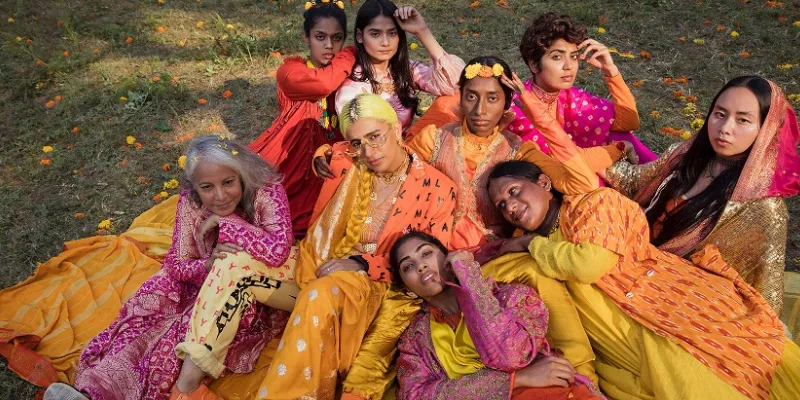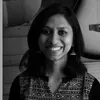Meet the musician-activist who opened for Oprah Winfrey on her stadium tour
Kiran Gandhi, who goes by the stage name Madame Gandhi, is a percussionist and an activist who aims to elevate and celebrate gender liberation and equality.
Artist and activist Kiran Gandhi, who performs as Madame Gandhi, aims to elevate and celebrate gender liberation, and is widely known as a multi-talented artist, percussionist, producer, and activist.
She holds a bachelor’s in mathematics and gender studies from Georgetown, and an MBA from Harvard. In 2015, she ran the London Marathon on the first day of her period without a pad or a tampon to combat the stigma around menstruation, sparking a viral conversation about how it is perceived in various cultures.

Musician-activist Madame Gandhi
Kiran has been recognised in Forbes 30 Under 30 and is a 2020 TED Fellow. Her math percussion, uplifting music, and inspiring talks have been critically acclaimed by The New York Times, Billboard, NPR, and more. Her song The Future is Female reached #8 on Spotify Viral US Charts following the 2017 Women's March.
She has released two short-form albums, Voices (2016) and Visions (2019), accompanied by a series of music videos produced and conceived by women and gender non-conforming creatives.
At present, she is working on her third short-form album Vibrations, which is expected in 2021. She has toured as the drummer for M.I.A., Thievery Corporation, and most recently Oprah on her 2020 Vision Stadium Tour.
Madame Gandhi recently released a new music video Waiting For Me on her social media channels. The video launches the next chapter in her career, as she announces her signing with Sony Music Masterworks.
In a conversation with HerStory, Madame Gandhi talks about her career so far, being an activist, and touring with celebrity talk show host Oprah Winfrey.
HerStory (HS): Tell us a little about yourself and where you grew up.
Madame Gandhi (MG): I grew up between New York City and Mumbai. I attended St. Anne’s in Mumbai and Chapin in New York City, which were similar in that they were all girls' private schools with a uniform. These experiences, of the benefit of seeing only female leadership but paired with restriction and conformity, deeply inspired the music video for my song, Waiting For Me.
HS: What are your earliest memories of music?
MG: My earliest memories of music are growing up in New York City and listening to the radio on the bus! I used to memorise all the songs on the top 40 or hip-hop radio and perform the lyrics for my friends. I remember watching music videos growing up in Mumbai and calling into the VJs on Vh1 or MTV and requesting songs as an eight-year-old.
I’ll never forget hearing my voice on TV requesting a song. My mum was so shocked she couldn’t believe I had figured out how to do that. I also learned how to play the drums when I was in Class 6 , so I spent a lot of time at a studio in Times Square in Manhattan practising as well as going to concerts and shows throughout middle and high school.
I loved seeing bands live and would always try to sneak backstage to meet the band members. The more I played my own music, the more confidence I had to go backstage and connect with band members. I’ll never forget how loving and generous TV on the Radio was. They are still my friends today.
HS: Was there any incident that prompted you to fight for/celebrate gender liberation?
MG: There was no particular incident. I just knew that there were so many incredible, dynamic, multi-faceted women in my life, that not seeing that represented in the media felt wrong to me.
I remember discovering the Spice Girls when I was eight years old and feeling so seen in music. I felt really empowered.
So, I think it was knowing what that small bit of representation did for me, which makes me want to do it for the next generation.
HS: When did you decide to become a drummer?
MG: At a summer camp in Maine when I didn’t want to sign up for a lake activity like swimming or water skiing. I wanted to just hide.
Then I found the drums in one of the cabins and started playing. A maintenance man heard me playing, and I thought he was going to go and tell a counsellor, but instead, he knew how to play drums and started teaching me.
That whole summer, the camp let me continue learning drums from him which was so powerful.
HS: Tell us about your short-form albums? What are they about and how were they received?
MG: I intentionally kept them to be short-form albums because I am still developing my sound. I know my sound is percussive, femme forward, uplifting.
But in the album I’m working on now called Vibrations, I’m largely producing it myself, so it is sonically much more me from the ground up, and I think my audience will connect with it a lot more.
In the meantime though, please do go listen to and watch the music videos for Voices and Visions.
HS: Tell us about your new music video, Waiting for Me? How did you conceptualise it?
MG: Waiting for Me is about moving from oppressive spaces to liberated spaces. And asking ourselves, whose oppression might I inadvertently be contributing to. I made the video with a female-led team in India and featured trans, queer, female, and gender non-comforming cast members.
We shot it in Mumbai where I grew up, but it is a message that I hope will resonate globally. We intentionally did not reduce Indian culture to Bollywood. Instead, we showed the nuances of Indian culture that I personally connected with growing up like the education system, fashion, and freedom in nature.
These aspects resonate globally, and I feel proud to represent my south Asian heritage in a nuanced and deeply personal light.

HS: What is your next album all about?
MG: It is really fun and, in many ways, easy to write because ideas seem to flow every day. I am not as distracted with the day to day responsibilities of touring.
The world feels like it’s moving at a slower rate, which gives us all time to go inward, especially as creative people. I love writing every day, imagining lyrics and choruses and arrangements of my songs. I feel excited to share Vibrations with you top of 2021.
HS: What has been the one life-changing moment in your career?
MG: Drumming for artist M.I.A while attending Harvard Business School from 2013-2015.
HS: Tell us about your work as a gender rights activist.
MG: In 2015, I ran the London marathon free bleeding on my period to combat the menstrual stigma women, girls, and trans folks face all around the world. I ran to say, “We bleed, and there is no shame, rather there is enormous power in our bodies.”
I channel this same power when I am writing lyrics that I hope will remind folks, especially women, girls, and trans folks, of our enormous power, no matter what the world tells us. I am passionate about gender liberation, about pleasure, about optimising for our own joy, about having dialogues with ourselves even though the world expects us to constantly give of our time and energy.
This is where my radicalism comes from, and I hope people reading will connect with my message, no matter their gender identity or sexual orientation. At the end of the day, my message is one of love and personal liberation.
HS: What is your take on the controversy surrounding free bleeding? Why do we need more conversations surrounding the stigma around menstruation?
MG: We need to be able to have education around the most normal parts of our biology in order to combat the stigma and shame. This is what will shift the conversation forward, and protect women, girls, and trans folks from feeling afraid of our own anatomy, or from making others hold us back because of it.
We have to take control of the narrative, we have to stop speaking in whispers, we have to describe how we actually feel or what we are going through each month, and we have to uplift each other for doing the same.
We need all genders to be equal partners in this mission so that every person has dignity with regards to their personal anatomy.
HS: Tell us about touring with Oprah.
MG: At the start of 2020, I joined morning dance party Daybreaker to open up each leg of the Oprah stadium tour drumming and dancing with the whole audience. It was iconic and life changing.
I’ll never forget when I hugged Oprah on March 7, the day before most of the US shut down because of coronavirus, and we wrapped up the last leg of our tour. It felt like we knew we would have to carry those joyful emotions we felt during the top of the year into the rest of the year in order to stay positive.
She is bright, powerful, and big spirited. Deeply kind and professional. I learned a lot from performing in a stadium, especially drumming.
HS: What have been your biggest highs and lows?
MG: Biggest highs have been running marathons (I’ve run 5) or being in love or being in the studio finishing song. The biggest lows have been feeling quieted in big educational institutions, where I’m supposed to feel like I belong. No matter what, all of our emotions only make our time on the planet more textured, and as artists, give us more to write and speak about. So I value all of it.
HS: What are your future plans?
MG: I am working on my next album Vibrations 2021, as well as the release for the remixes to my 2019 album Visions.
Edited by Saheli Sen Gupta








